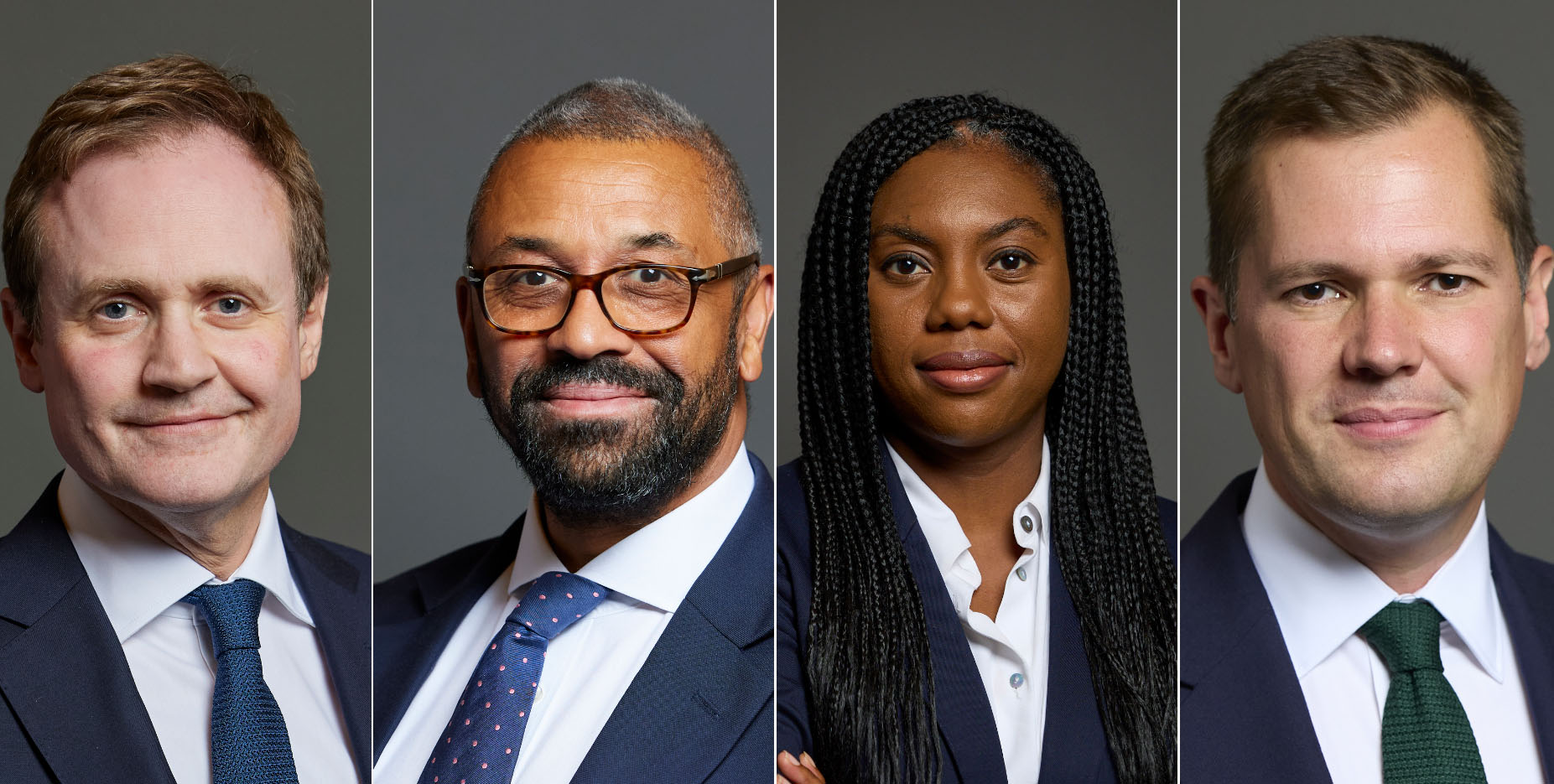
Abu Yusra Chowdhury
As the Conservative Party prepares for its annual conference in Brighton at the end of September, all eyes are on the race to succeed Rishi Sunak following the party’s crushing defeat in the July General Election.
Four MPs have been shortlisted by parliamentary members of the Conservative Party in two rounds of voting. Former immigration minister Robert Jenrick currently leads with 33 votes, followed by Kemi Badenoch with 28 votes, while James Cleverly and Tom Tugendhat tie for third with 21 votes each.
The leadership contest unfolds against a backdrop of persistent accusations of Islamophobia within the party. Earlier this year, the Conservatives faced criticism when then Deputy Chair, Lee Anderson, claimed that London Mayor Sadiq Khan was “controlled by Islamists.” Despite Anderson losing the whip and later defecting to Reform, the party leadership refused to describe the accusations as Islamophobia.
Front-runner Jenrick defended Anderson, telling GB News in March that Anderson “was not an Islamophobe” and that action against him closed the debate on the “problem in this country with Islamist extremism.” Badenoch echoed this sentiment, calling the decision to remove the whip from Anderson a “mistake.”
Recent polling reveals concerning attitudes among Conservative Party members. An Opinium poll found that 40% hold negative views of Muslims, and 52% subscribe to the false belief that some European cities are under Sharia law and are “no-go” areas for non-Muslims. This mirrors a 2020 Hope Not Hate survey, which found that 47% of Tory members believe Islam threatens British values.
The leadership candidates’ responses to recent nationwide riots, sparked by false rumours about the alleged Muslim identity of the Southport attacker, have further intensified concerns. Many right-wing commentators have been accused of fomenting the violence, including Nigel Farage, leader of the Reform Party, who, as misinformation about the identity of the perpetrator spread, wrote on Twitter, “Some reports suggest the attacker was known to the security services.”
While condemning the violence, none of the candidates explicitly described the attacks on Muslims as Islamophobia.
During the riots, Jenrick deployed the much-criticised ‘two-tier-policing’ accusations and compared the responses to the largely peaceful pro-Palestinian marches with the recent far-right violence, stating on Sky News on 7 August: “I thought it was quite wrong that somebody could shout Allahu Akbar on the streets of London and not be immediately arrested, project genocidal chants onto Big Ben and not be immediately arrested.” This comment drew criticism, including from Conservative peer Baroness Sayeeda Warsi, who called it “nasty divisive rhetoric.”
Meanwhile, Badenoch used her leadership launch to dismiss extremism concerns about the Reform Party, instead declaring she was “far more worried about the five independent MPs elected on sectarian Islamist politics, alien ideas that have no place here.”
The failure of Tory leadership candidates to decisively denounce both the violence and the ideologies behind it is evident in recent polling. As the riots escalated, a YouGov poll on August 6 revealed that Reform UK voters are far more likely than supporters of other parties to endorse the recent unrest at protests, deem it justified, and sympathise with the views of those involved.
Unlike the leading candidates in the Tory party, former counter-terrorism police chief Neil Basu compared the riots to acts of terrorism, while Mayor of Liverpool, Steve Rotheram, was among the many voices condemning the violence as ‘outright Islamophobia.’
As the leadership race unfolds, observers are closely monitoring how candidates address these concerns. Beyond the party’s internal reckoning with Islamophobia, another key test will be whether it continues to reject the proposed All-Party Parliamentary Group on British Muslims’ definition of Islamophobia, even as it supports the IHRA definition of antisemitism.
Earlier this month, Conservative MP David Simmonds, a member of the All-Party Parliamentary Group on British Jews, tabled a Parliamentary Question on whether the new Labour government intends to adopt the definition. However, it is unclear whether this move is a pre-emptive attempt to sideline efforts to tackle Islamophobia and anti-Muslim hatred.
Following the party conference, Conservative MPs will hold another vote to narrow down the field to two final candidates. The wider party membership will then choose between them in November. This leadership contest could have a profound impact on the Conservative Party’s future direction, particularly in its relationship with Muslim voters, given recent events and ongoing concerns about the party’s handling of Islamophobia.
Photos: Tory leadership candidates: Tom Tugendhat, James Cleverly, Kemi Badenoch and Robert Jenrick (Creduit Laurie Noble/UK Parliament)


